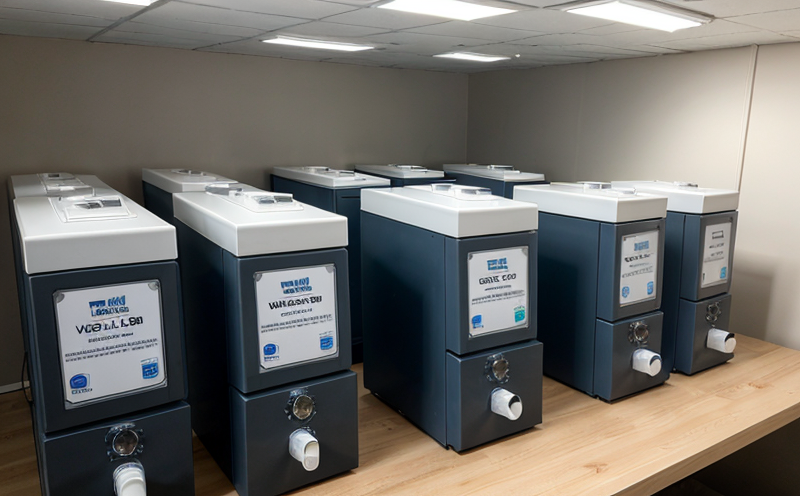Apparel fabric air quality compliance testing
The apparel industry is a cornerstone of global trade and economic growth. From raw materials to finished products, ensuring product safety and regulatory compliance is paramount for manufacturers and retailers alike. One critical aspect of this responsibility lies in the testing of textile fabrics for formaldehyde and volatile organic compounds (VOCs). This service ensures that the air quality emitted from apparel fabrics aligns with stringent international standards.
Formaldehyde, a known carcinogen, is often used as a preservative or finishing agent in textiles. Its presence can lead to respiratory issues when released into the air during wear and use. VOCs contribute significantly to indoor air pollution and can also affect human health. Testing these elements in apparel fabrics helps manufacturers meet stringent regulatory requirements set by various authorities worldwide.
Our laboratory utilizes advanced analytical techniques such as gas chromatography-mass spectrometry (GC-MS) and high-performance liquid chromatography (HPLC). These methods provide precise measurements of formaldehyde levels, ensuring compliance with international standards like ISO 17238 for formaldehyde content in textile materials. For VOCs, we follow the guidelines specified by ASTM D6436 to assess their emission rates.
Testing protocols involve rigorous specimen preparation and analysis. Samples are cut into standardized sizes based on the fabric type and tested under controlled conditions to simulate real-world usage scenarios. Our experts then interpret these results against relevant standards, providing actionable insights for quality improvement or product certification.
The importance of this testing extends beyond mere compliance; it impacts brand reputation, consumer trust, and even regulatory penalties. Non-compliance can lead to recalls, fines, and damaged brand image—a costly mistake that can irreparably harm a company’s standing in the market.
Our service not only ensures legal adherence but also supports sustainability initiatives by promoting safer manufacturing practices. By reducing harmful emissions, we contribute to healthier indoor environments for consumers and more responsible business operations across the supply chain.
Why It Matters
The significance of apparel fabric air quality compliance testing cannot be overstated. As global regulations evolve to protect public health, the demand for safer products grows exponentially. This service addresses several critical issues:
- Regulatory Compliance: Ensures adherence to international standards like ISO 17238 and ASTM D6436.
- Health & Safety: Protects consumers from exposure to harmful chemicals.
- Sustainability: Promotes environmentally friendly manufacturing processes.
- Risk Management: Mitigates potential legal and financial risks associated with non-compliance.
In today’s competitive market, where consumer awareness is at an all-time high, meeting these standards can significantly enhance brand loyalty and customer satisfaction. By investing in air quality compliance testing early in the product development process, manufacturers can avoid costly reworks and ensure a smoother path to market entry.
Applied Standards
The formaldehyde and VOC content testing we offer is guided by several internationally recognized standards:
- ISO 17238:2016 – Determination of free and total formaldehyde in textile materials.
- ASTM D6436-15a – Standard test method for determination of volatile organic compounds from indoor building and construction materials by dynamic headspace solid-phase microextraction (HS-SPME).
These standards provide clear protocols for sample preparation, measurement techniques, and acceptable limits, ensuring consistency and reliability in our testing results.
International Acceptance and Recognition
- Countries Recognizing ISO Standards: The United States, European Union countries (EU), Japan, South Korea, China, Australia, Canada, and many others.
- ASTM Standards Adoption: Widespread acceptance in the United States. ASTM standards are also recognized by numerous international organizations including the International Organization for Standardization (ISO).
Our testing results are widely accepted across these regions, facilitating smoother trade between countries and ensuring a level playing field for all participants in the global textile market.





